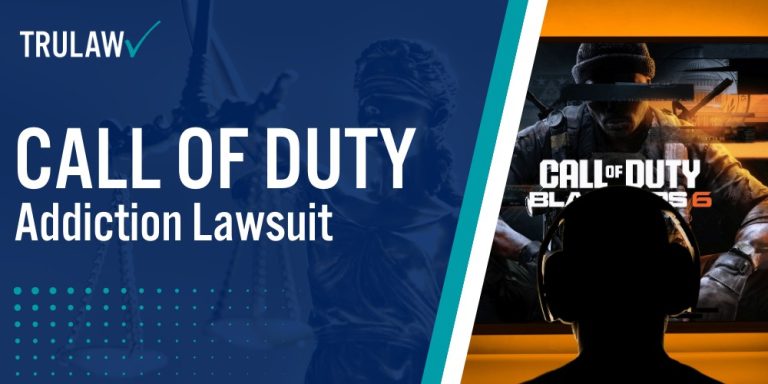Scientific literature identifies specific game design patterns that trigger compulsive behavior in modern video games, and Call of Duty implements many of these systems.
Research on loot box mechanics demonstrates that these features share similarities with gambling, designed to encourage excessive gaming habits and create uncontrollable spending patterns.
Grasping these psychological tactics is central to both legal claims and scientific evidence, as plaintiffs argue Activision deliberately engineered psychological exploitation into gameplay systems rather than accidentally creating engaging entertainment.
Battle Pass Systems Create Artificial Time Pressure
The seasonal battle pass model (typically 100 tiers unlocked over 6-8 weeks for approximately $10-15) deliberately exploits several psychological principles.
Players who purchase must invest 50-100 hours per season to unlock all content, creating time-pressure that transforms leisure into obligation.
The battle pass model deliberately targets several psychological vulnerabilities:
- Sunk Cost Fallacy: Having paid for the pass, players feel compelled to justify the money spent through continued play even when enjoyment diminishes
- Loss Aversion: When seasons end, unpurchased tiers disappear permanently, weaponizing a cognitive bias where research shows losses feel twice as painful as equivalent gains feel pleasurable
- Time Pressure: Limited seasonal windows create artificial urgency that forces players into extended gaming sessions, prioritizing game progression over other activities including sleep, academics, or social relationships
Seasonal resets weaponize fear of missing out by ensuring incomplete content vanishes forever.
This transforms entertainment into obligation, with players reporting they continue playing not because they want to, but because they feel they must to justify their investment.
SBMM Allegedly Manipulates Emotional States Through Match Outcomes
Skill-Based Matchmaking (SBMM) controversy centers on allegations that Activision uses engagement-optimized matchmaking (EOMM) algorithms that prioritize player retention over fair competition, deliberately cycling players through win and loss patterns to optimize playtime.
Allegations center on the following manipulation techniques:
- Win/Loss Cycling: Algorithms allegedly place players in easier matches after losses to trigger dopamine responses, then harder matches after wins to create frustration during intense competitive gameplay that demands “just one more game” to restore positive feelings
- Frustration Engineering: Intentional creation of negative emotional states that players feel compelled to resolve through continued play rather than disengagement
- Dopamine Triggering: Strategic delivery of victories that create neurochemical rewards on unpredictable schedules, mimicking the variable-ratio reinforcement schedules found in slot machines that promote compulsive behavior
Variable ratio reinforcement (where rewards arrive after unpredictable attempts) represents one of the most powerful behavioral conditioning tools.
If you believe manipulative matchmaking systems contributed to your gaming addiction, you may have grounds for legal action.
Contact TruLaw using the chat on this page to receive an instant case evaluation and determine whether you qualify to pursue a video game addiction lawsuit against Activision.
Daily and Weekly Systems Establish Compulsive Checking Behavior
Call of Duty employs appointment mechanics through daily challenges that reset every 24 hours and weekly objectives tied to battle pass progression, exploiting habit formation psychology that trains players to check in at intervals regardless of genuine desire to play.
The following appointment mechanics drive compulsive checking behavior:
- Daily Challenges: Reset every 24 hours to force regular logins, with rewards that expire if not claimed, creating anxiety about missing opportunities
- Weekly Objectives: Tied to battle pass advancement, requiring consistent engagement across seven-day periods that normalize daily play as expected behavior
- Prestige Resets: After reaching maximum level, players can reset progress for status-conferring prestige icons visible to others, leveraging social comparison drives to extend engagement indefinitely
Research demonstrates that engagement with these mechanics shows patterns consistent with problem gambling, with effect sizes indicating substantial behavioral impact.
These systems transform voluntary entertainment into scheduled obligations that punish absence rather than reward presence.
Limited-Time Content Weaponizes Fear of Missing Out
Rotating store bundles, limited-time game modes, seasonal exclusive cosmetics, and time-gated events create artificial scarcity designed to exploit fear of missing out rather than deliver genuine entertainment value.
Call of Duty deploys several FOMO-driven tactics:
- Rotating Bundles: Store items that disappear after 24-48 hours, creating pressure to purchase immediately without time for considered decision-making
- Limited Modes: Popular game modes removed on rotating schedules, forcing players to engage during specific windows or lose access entirely
- Seasonal Exclusives: Cosmetic items available only during specific seasons that never return, creating permanent loss anxiety
- Licensed Crossovers: External IP content like celebrity operators (Nicki Minaj, Snoop Dogg) or horror movie characters with unpredictable availability windows
The FTC has raised concerns about whether minors fully grasp loot box costs and their susceptibility to marketing tactics used across the video game industry.
FOMO drives excessive spending and playtime from anxiety about permanent loss rather than enjoyment, particularly targeting young players who lack developed impulse control.



